



Important Reminders
Beyond the Vaccine: Protecting Yourself From COVID-19
Good news! Millions of Americans are now eligible to receive the vaccine.
- If you are vaccinated against COVID-19, you may still be exposed and can spread the COVID-19 virus without feeling sick or having any symptoms (asymptomatic infection). Scientists are still learning how well vaccines prevent you from spreading COVID-19 to others who are unvaccinated.
- As of March 2021, the Centers for Disease Control and Prevention (CDC) has reported more than 29 million COVID-19 cases across the U.S. This disease continues to heavily impact communities of all races, ethnicities, and age groups. It is up to us as individuals and communities to continue to do our part to protect our families and communities.
Be vigilant in reducing the spread and transmission of COVID-19.
Slow the Spread: Protecting Yourself When in Public Spaces
- Wear a mask or cloth face covering especially when near others who have not been vaccinated.
- Wait six feet apart.
- Avoid medium- and large-sized in-person gatherings.
- Avoid poorly ventilated indoor spaces.
- Wash your hands often.
It is currently mandatory to wear a mask on planes, buses, trains, and other forms of public transportation when traveling into, within, or out of the U.S. and in U.S. transportation hubs, such as airports, and bus and train stations, as well as all federal buildings and properties.
New, more contagious strains of COVID-19 (Brazilian, U.K., and South African variants) are rapidly spreading making it more important to continue to protect yourself and others.
Protect Everyone: Wear Your Mask Properly
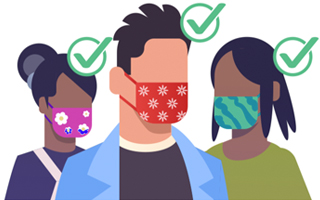
- Choosing and wearing a face mask correctly is important, as it reduces the transmission of COVID-19.
- Be sure to wash your hands or use hand sanitizer before putting on a mask.
- Do not touch the mask when wearing it, as that spreads the virus from your hands to your mask. If you must touch or adjust your mask, or it doesn’t fit you properly, you may need to find a different mask or make adjustments.

Hot Health Topic
Know the Facts: COVID-19 Vaccines
Imagine the day you can reconnect with your family, friends, and members of your faith community, and finally indulge in a meal at one of your favorite restaurants or in person with others without having to keep six feet apart. That day could be coming soon if we do our part to keep ourselves, our families, our communities, and our country healthy and safe.
As a community, we have worked diligently to prevent the spread of COVID-19 by following the North Carolina Department of Health and Human Services (NCDHHS) 3 Ws: Wearing a mask, Washing our hands, and Waiting at least six feet apart. Public health programs, public service announcements, action leaders, essential workers, and others have made a tremendous impact educating the public on current research and steps to prevent the spread. It is equally important to educate our community about COVID-19 vaccines approved for emergency use by the Food and Drug Administration (FDA), their safety and effectiveness, and encourage others to consider vaccination.
This article aims to provide you with credible information surrounding the Pfizer-BioNTech, Moderna, and Johnson & Johnson vaccines, their effectiveness, side effects, and the overall benefits. We hope this article will encourage members of all communities to get vaccinated, leading our state and country to return to normal life.
Important Notes
- You will need an appointment to get a vaccine. Keep in mind the vaccine will eventually be available to all who are willing to receive it, but at this time supplies are limited. Due to limited supplies, health experts have advised that Americans should get the vaccine they are offered.
- After your vaccination, you will receive a COVID-19 vaccine card that you can share with your health care provider. This information will assist health care workers in ensuring you get the same vaccine for both doses. See Fact 2 for more information.
- If you get a COVID-19 vaccine, and you think you might be having a severe allergic reaction after leaving the vaccination site, seek immediate medical care by calling 911.
- If you have pain or discomfort after getting vaccinated, talk to your doctor about taking over-the-counter medicine, such as ibuprofen, aspirin, antihistamines, or acetaminophen.
- If you had anaphylaxis reaction to the first vaccine dose, you need to contact your doctor to let them know and seek advice before taking the second dose.
- According to the Centers for Disease Control and Prevention (CDC), people are considered fully vaccinated two weeks after they receive the second Pfizer-BioNTech or Moderna vaccine, and two weeks after they receive the Janssen/Johnson & Johnson (J&J) vaccine.
Fact 1: Knowing Your Vaccine Is Important
Currently, three COVID-19 vaccines are authorized by the FDA for use in the U.S.:
- Janssen (Johnson & Johnson)
- Moderna (ModernaTx Inc.)
- Pfizer-BioNTech (Pfizer Inc.)
Janssen’s Vaccine (Johnson & Johnson)
- More than 44,000 participants across all populations, races, and ethnicities participated in the vaccine trial.
- As of February 27, 2021, the vaccine is FDA-approved for use and meets the FDA criteria as safe and effective.
- Every study, every phase, and every trial were reviewed by the FDA and a safety board.
- Single dose vaccine.
- No serious safety concerns were observed.
- Administered in the muscle of the upper arm.
- Efficacy rate of 85%, meaning that 85% of people who get the vaccine are protected from a serious infection of the COVID-19 virus.
- Approved for people age 18 and older.
Moderna Vaccine
- More than 30,000 participants across all populations, races, and ethnicities participated in the vaccine trial.
- Every study, every phase, and every trial were reviewed by the FDA and a safety board.
- No serious safety concerns were observed.
- Two doses of vaccine are recommended 28 days apart.
- Administered in the muscle of the upper arm.
- Efficacy rate of 94.1%, meaning that 94.1% of people who get the vaccine are protected from a serious infection of the COVID-19 virus.
- Approved for people age 18 and older.
Pfizer-BioNTech Vaccine
- More than 43,000 participants across all populations, races, and ethnicities participated in the vaccine trial.
- Every study, every phase, and every trial were reviewed by the FDA and a safety board.
- No serious safety concerns were observed.
- Two doses of vaccine are recommended 21 days apart.
- Administered in the muscle of the upper arm.
- Efficacy rate of 95%, meaning that 95% of people who get the vaccine are protected from a serious infection of the COVID-19 virus.
- Approved for people age 16 and older.
Fact 2: The Importance of Taking All Doses and Taking Them on Schedule
Some vaccines require two shots to be most effective. Two doses are required to have full immunity for the Pfizer-BioNTech and Moderna vaccines. There is only one dose for the Johnson & Johnson vaccine.
It is important to note one dose of the Pfizer-BioNTech or Moderna vaccine will not give full immunity. This means that if you get one shot, you could still get sick with COVID-19. It’s common for vaccines to require two, three, or sometimes even four doses to be most effective. This fact is true for many vaccines given to children, like hepatitis B, diphtheria, and tetanus.
Table 1, available from the Kaiser Family Foundation, displays the timing between the doses for the Pfizer-BioNTech and Moderna vaccines. Notice the increase in efficacy after the second dose. After receiving the second dose, the efficacy reaches its full potential seven days after the Pfizer-BioNTech vaccine, and 14 days for the Moderna vaccine.
Fact 3: Know Your Group and Know Your Vaccine Location
- Vaccine distribution is occurring in phases and by groups.
- Groups are based on age, essential worker status, type of work, chronic conditions, and close group living settings. It is important to know your group number status so you can get your shot when it is your turn.
- Find My Vaccine Group can be used to locate your group number status in North Carolina.
- As of March 17, 2021, North Carolina was vaccinating group 4.
- Vaccine Finder can be used to find North Carolina vaccine locations.
- For other states, visit your state health department website for information about the coronavirus (COVID-19) and more.
Fact 4: Do Not Take Any Over-the-counter Anti-inflammatory Medication Before Getting the Vaccine
- If you take an anti-inflammatory medication due to a medical condition, talk with your doctor first before stopping any medication. This includes over-the-counter anti-inflammatory medication, such as Tylenol, Motrin, aspirin, and Aleve.
- Doctors recommend against taking this type of medication before vaccination for the purpose of trying to prevent side effects because it is not known how these medications may impact how well the vaccine works.
Fact 5: Common Side Effects
- A major concern people have about the COVID-19 vaccine is the potential for side effects. Research has shown that COVID-19 vaccines are safe and effective.
- When mild side effects occur, they are a normal sign your body is building protection to the virus, and most go away within a few days.
COVID-19 Vaccine Myth Busters
Now that there are authorized and recommended COVID-19 vaccines in the United States, accurate vaccine information is critical. It can be difficult to know which sources of information you can trust. Learn more about these facts:
| Myth | Fact |
|---|---|
| The COVID-19 vaccine will give me COVID-19. | You cannot and will not contract COVID-19 by getting the vaccine. The COVID-19 vaccine does not include any live virus. Therefore, you cannot get COVID-19 from the vaccine. The protein that helps your immune system recognize and fight the virus does not cause infection of any sort. |
| If I have already had COVID-19 and recovered, I do not need to get a vaccine. | Due to the severe health risks associated with COVID-19, the fact that re-infection is possible, and the appearance of new COVID-19 strains, you should get the vaccine. |
| The COVID-19 vaccine will alter my DNA. | The COVID-19 messenger RNA (mRNA) vaccines do not change or interact with your DNA in any way. The vaccines are designed to help your body’s immune system fight the coronavirus. The mRNA from two of the first types of COVID-19 vaccines does enter cells, but not the nucleus of the cells where DNA resides. The mRNA does its job to cause the cell to make protein to stimulate the immune system, and then it quickly breaks down — without affecting your DNA. |
| After getting a COVID-19 vaccine, I will test positive for COVID-19 on a viral test. | No, you will not test positive for COVID-19. Recently authorized and recommended vaccines, nor the other COVID-19 vaccines currently in clinical trials in the United States, can cause you to test positive on viral tests, which are used to see if you have a current infection. |
| Researchers rushed the development of the COVID-19 vaccine, so its effectiveness and safety cannot be trusted. | The COVID-19 vaccines from Pfizer-BioNTech and Moderna were created with a method that has been in development for almost two decades. Vaccine makers created the technology to help them respond quickly to a new pandemic illness, such as COVID-19. Due to this already existing technology, the vaccine companies could start the vaccine development process early in the pandemic. |
| Getting the COVID-19 vaccine means I can stop wearing my mask and taking coronavirus (social distancing) precautions. | Individuals who get the COVID-19 vaccination still need to practice infection prevention precautions. Keep your mask on and continue staying at least six feet from people outside your household until further notice. Vaccines do not stop the coronavirus from entering your body; they only prevent you from developing moderate to severe COVID-19. It’s not yet clear if people vaccinated for COVID-19 can still carry and transmit the virus, even when they themselves don’t get sick. |
| The COVID-19 vaccine was developed with, or contains, controversial substances. | Moderna and Pfizer-BioNTech COVID-19 vaccines were not developed with, nor contain, any controversial substances. The Moderna and Pfizer vaccines are authorized by the FDA and contain mRNA and other, normal vaccine ingredients, such as fats (which protect the mRNA), salts, as well as a small amount of sugar. These COVID-19 vaccines were not developed using fetal tissue, and they do not contain any material, such as implants, microchips, or tracking devices. |
| Is there a difference between the first dose and second dose of the Pfizer-BioNTech and Moderna vaccines? | No, there is not a difference between the two doses for either the Pfizer-BioNTech or Moderna vaccine. There is no difference in the chemical makeup of dose one and dose two. Both doses are necessary to reach the highest possible level of immunity. |
Conclusion
- The authorized and recommended vaccines are effective amongst all ethnic groups and are proven to be effective at protecting you from the virus.
- Scientists and researchers have proven that the vaccines are safe.
- Getting the vaccination could help end the damage done to the economy and prevent more illnesses and deaths.
- Getting the vaccine will help our community get back to some sense of normalcy.
- Getting vaccinated will help keep you, your family, and your community healthy and safe, and allow you to reconnect with friends and loved ones.

Beyond the Vaccine
Be Your Own Advocate
Being your own advocate when it comes to COVID-19 may save your life and keep your family safe, well, and alive!
Advocacy Point 1: Keep up to Date With Credible COVID-19 Information and Resources
Credible information can be found at the following websites:
- Centers for Disease Control and Prevention (CDC)
- Food and Drug Administration (FDA)
- National Institute of Allergy and Infectious Diseases (NIAID)
- National Institutes of Health (NIH)
- North Carolina Department of Health and Human Services (NCDHHS)
- U.S. Department of Health and Human Services (DHHS)
- Your state or local health department
With access to information, you can be vigilant with your health and your life by developing a plan and toolkit.
Advocacy Point 2: Know About Current COVID-19 Testing
Even with the vaccine, COVID-19 testing is still extremely important. As of March 2, 2021, North Carolina has reported more than 862,000 cases of COVID-19. The North Carolina Department of Health and Human Services (NCDHHS) provides a locator tool for finding a testing center.
Lucira COVID-19 All-in-one At-home Test Kit
- The Food and Drug Administration (FDA) approved the first COVID-19 all-in-one diagnostic at-home self-test kit.
- This is the first COVID-19 diagnostic test kit that can be fully self-administered.
- This kit provides rapid results at home.
- Prescription is required.
- Instructions for performing the test are available.
Advocacy Point 3: Be Aware of Your Oxygen Levels If You Have COVID-19
Pulse oximeters can be used as a tool to keep check on your oxygen levels, and are just as important in your COVID-19 home toolkit as your thermometer for body temperature reading.
Oxygen levels can decrease very quickly and without warning in individuals infected with the COVID-19 virus.
- If you are feeling extremely tired, exhausted, or lethargic, it could be due to low oxygen levels. Check your oxygen levels with a pulse oximeter.
- Oximeters are the only way to measure the level of oxygen in the blood at home or outside of a hospital setting.
- Normal oximeter readings in people without pre-existing lung disease (like emphysema) should be higher than 92%.
- Abnormal oximeter readings are readings of less than 90%.
- Pulse oximeters should only be used on fingers without nail polish or artificial nails.
- If you have cold hands and cold fingers, it is best to warm up your fingers before using an oximeter, as cold fingers produce unreliable readings.
- Sometimes, due to the pigmentation of the skin, the device may not work as well on darker skin toned individuals.
- Just like your thermometer, the pulse oximeter is only one piece of information that should be in your COVID-19 toolkit, and should not be used as the only criterion to guide treatment decisions or to determine when to seek medical attention.
- Don’t ignore how you are feeling! How you are feeling overall is the most important piece of information in your COVID-19 toolkit. If you have COVID-19 and are feeling short of breath, but getting an acceptable reading, you should pay more attention to the shortness of breath than the oximeter reading.
Pulse oximeters can be purchased at your local pharmacies and other retailers.
Advocacy Point 4: Know the Current Available COVID-19 Treatments
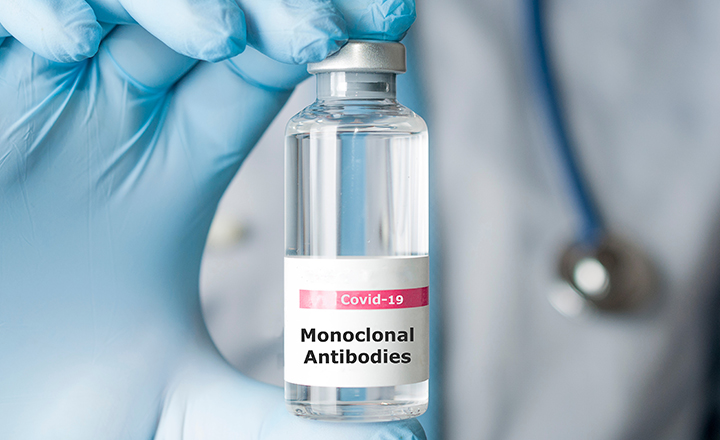
Monoclonal Antibodies for High-risk COVID-19 Positive Patients
Monoclonal antibodies are effective treatments in attacking the COVID-19 virus. The FDA has issued emergency use authorization for two investigational monoclonal antibody treatments. These treatments help the immune system recognize and respond more effectively to the virus.
Who Are the Treatments For?
- Individuals with mild to moderate COVID-19 symptoms such as fever, cough, sore throat, malaise (feeling unwell), headache, muscle pain, nausea, vomiting, diarrhea, and loss of taste and smell. Moderate symptoms may also include shortness of breath.
- Must receive treatment within 10 days of having the first symptoms of COVID-19.
- Individuals who are 12 years of age and older, and who are at high risk for progressing to severe COVID-19 and/or hospitalization.
- High risk status includes obesity, diabetes, chronic kidney disease, weakened immune system, or taking a medicine that weakens the immune system.
- Be your own health advocate. Don’t wait! Let your physician know that you want a required referral for this treatment.
Advocacy Point 5: Know What to Do If You Become Sick
- Get tested if experiencing COVID-19 symptoms.
- Stay home.
- Isolate yourself (stay in a specific room, tell your close contacts).
- Take care of yourself (rest, stay hydrated, use over-the-counter medicines for symptoms).
- Monitor your symptoms.
- Stay in touch with your doctor.
- Avoid sharing personal household items (toothpaste, soap, etc.).
- Avoid public transportation.
Know the warning signs and when to call 911 or seek immediate medical attention (e.g., trouble breathing; pain or pressure in chest; new confusion; inability to wake or stay awake; pale, gray, or blue colored skin, lips, or nail beds, depending on skin tone).
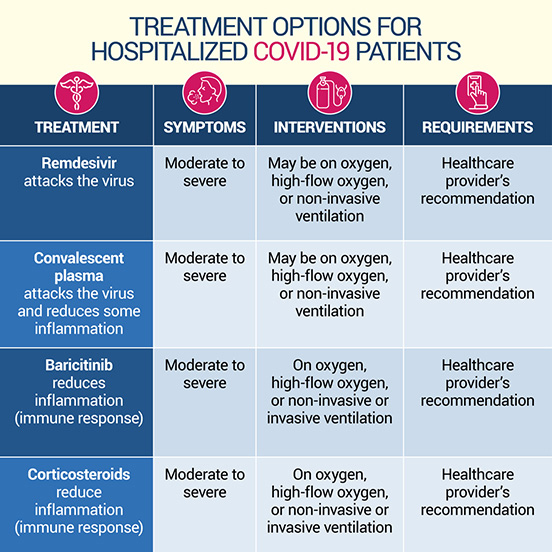
Continually protecting yourself and others in your community is essential now more than ever, especially considering the new COVID-19 variants. As a community, together we are better! Find out your COVID-19 status and share your passion and commitment to safety with friends and family to stay healthy and save lives.

Environmental Health
Mammograms and COVID-19 Vaccines
Important Announcement! Could the Vaccine Cause an Issue If I’m Getting a Mammogram?
Some people might have swelling or tenderness in the lymph nodes under the arm in which they got the injection. This reaction is a normal response by the body’s immune system, which is getting ready to fight a future COVID-19 infection.
A swollen lymph node under the arm might cause concern because it can also be a sign of breast cancer. The time it takes for the lymph nodes to shrink back down after the vaccine may be a few days to a few weeks, although this effect is still being studied by researchers.
If you notice swollen or tender lymph nodes that do not go away after a few weeks (or if they continue to get bigger), contact your doctor immediately.
Visit the Society of Breast Imaging COVID-19 Resources for more information.
Article Source: American Cancer Society.
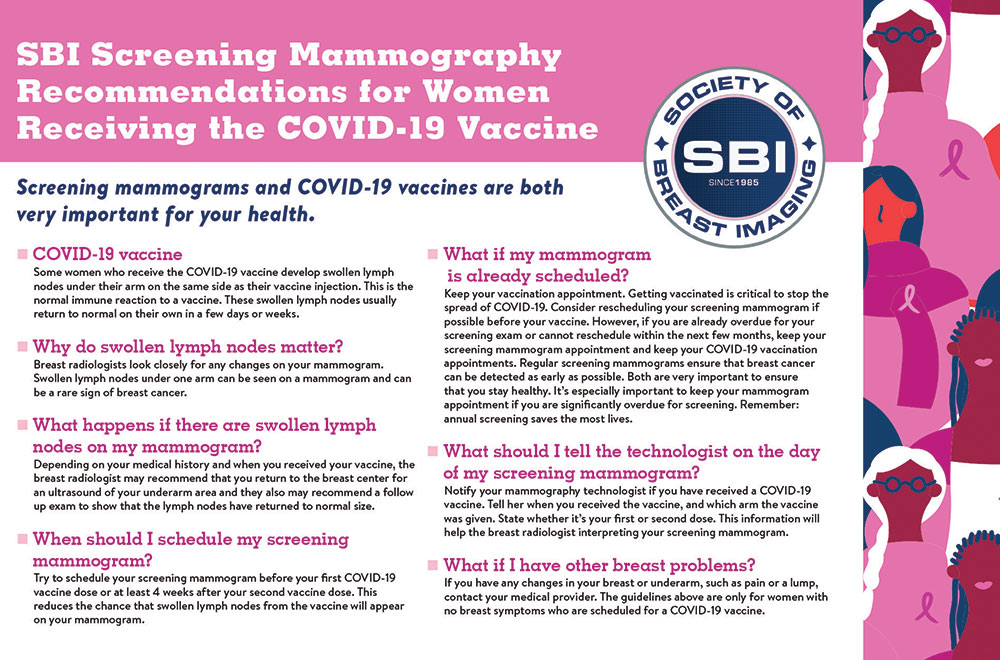

Nutrition Corner
Cauliflower Rice Stir Fry with Duck Sauce and Hot Mustard
In January’s Virtual Series: RealTalk With the Experts, Allan Hatch, M.D., led a session on “Understanding and Reversing Diabetes, Heart Disease, and Most Chronic Illnesses”. Heart disease is the leading cause of death in women, and it may be prevented with proper nutrition and exercise. During this session, Women’s Health Awareness participants had questions on the benefits of a plant-based diet to improve health. Studies have shown that 80% of chronic diseases are preventable or reversible, especially with a shift to a plant-based diet.
What makes plant-based diets work to reverse or prevent disease? Plant-based diets can help improve blood pressure, blood sugar, and cholesterol levels by limiting sodium, increasing fiber intake, and providing important nutrients to boost the immune system and reduce inflammation. Many plant-based dishes are tasty and can be created with a variety of fruits and vegetables, allowing an individual to take in their appropriate level of daily nutrients: vitamins, minerals, fiber, and antioxidants. Much research has shown a relationship between a plant-based diet, regular exercise, and decreased stress with weight loss, thus preventing and/or improving heart disease, Type 2 diabetes, most cancers, and overall, living a longer, healthier life.
Recipe was developed by Monique May, M.D. It is plant-based, tasty, and can be modified according to your diet or taste buds.
Stir Fry Rice
- 1/2 head of cauliflower, riced in food processor
- 1/4-1/2 block of extra firm tofu, drained of liquid and chopped or cubed
- 1 cup of bean sprouts, rinsed
- 4 cloves garlic, minced, divided
- Fresh ginger, 1 inch, grated, divided
- 4 oz. white or baby bella mushrooms, chopped
- 1/2 red onion, diced
- 1 cup of frozen green peas
- 1 red bell pepper, cut into strips
- 1/4-1/2 cup soy sauce or tamari
- 3-4 tablespoons garlic stir fry oil
- 1/4 teaspoon ground turmeric
- Add stir fry oil to wok over medium heat. Add mushrooms, onion, ginger, and bell pepper, stir frequently, cook for 3-4 minutes.
- In a separate small skillet add garlic stir fry oil over medium heat. Add tofu and break apart with a fork and “scramble” with turmeric until it looks like a scrambled egg (just a few minutes).
- Add cauliflower rice and remainder of garlic and ginger to wok, cook another 3 minutes.
- Add tamari or soy sauce and stir.
- Add bean sprouts and peas. Stir until well blended and warm throughout. Salt and pepper to taste, if desired.
Duck Sauce
- 3-4 tablespoons apricot jam
- 1 1/2 tablespoons rice wine vinegar
- 1/4 teaspoon ground mustard
- 1/4 teaspoon garlic powder
- 1/8 teaspoon ginger powder (fresh is better)
- Mash apricot jam with fork to break down any large pieces of fruit.
- Add remaining ingredients and whisk until blended well.
- Pour over stir fry and store any unused portion covered in the refrigerator for 2-3 days.
Hot Mustard
- 1/4 cup dry mustard
- 1/8 teaspoon ground white pepper
- 1/4 teaspoon garlic powder
- 3 tablespoons cold water
- 1-2 teaspoons honey, added to taste, optional
- Add all ingredients to a bowl and whisk until smooth. Add honey, if desired, to cut the heat.

The Reading Nook
Winter 2021 Featured Book Selection
Reading provides numerous health benefits, including learning new skills to improve one's lifestyle. Research published in Neurology suggests that reading stimulates your brain and may help slow the progression of age-related memory conditions such as Alzheimer's Disease and dementia. Reading engages the brain and may preserve brain health and lower cognitive decline in older age. Whether consuming books for self-improvement, knowledge, cognitive improvement, or creativity, reading is good for your health!

Medical Apartheid: The Dark History of Medical Experimentation on Black Americans from Colonial Times to the Present
Author: Harriet A. Washington
Summary: This book is the first full history of the shocking mistreatment of experimental subjects at the hands of medical researchers, practitioners, and scientists. Anyone who is passionate about public health and racial justice issues should read this book.
From the era of slavery to the present day, starting with the earliest encounters between Black Americans and Western medical researchers and the exploitative practices that resulted, Medical Apartheid details the ways both slaves and freedmen were used in hospitals for experiments conducted without their knowledge.

Recenter, Refocus, Recharge
Meditation Strategies
The past year has been full of disbelief, confusion, fear, worry, and grief. These are all difficult feelings to experience, and it can be easy to try to bypass them by suppressing, escaping, or acting impulsively. However, avoiding how we feel isn’t solution-based and can harm our health, well-being, and personal and professional relationships.
Matthias Birk, Ph.D., has been practicing meditation for more than two decades to executives at organizations such as Amazon, Goldman Sachs, Google, McKinsey & Co., Ralph Lauren, and the United Nations. Here are three strategies he recommends for using mindfulness to address these hard-to-have feelings in a productive way.
- Feel the tough feeling without judging it – the first step in becoming mindful is to understand what it is you’re feeling. Throughout the day, when you notice yourself getting frustrated, anxious, or sad, try to find a moment to pause. Start by focusing on your breathing, then see if you can name your experience.
- Drop the story, not the feeling – mindfulness allows us to realize that while external events might have been the trigger for our feelings, it’s our interpretation of those events that actually causes them, which gives us back some form of control.
- Make an effort to share what you’re feeling and why – revealing involves sharing feelings not in the heat of the moment, but when we’re in a reflective state. Instead of blaming the other person’s behavior as responsible for our negative feeling, we share our interpretation of the person’s behavior or situation and reveal how we created our feelings based on that interpretation.

Multimedia Showcase
Women's Health Awareness Community Impact
Women's Health Awareness Community Impact
This video details the impact of a Women's Health Awareness event from the perspective of institutional officials, community members, collaborators and, healthcare professionals.

Black Maternal Mortality
A Crisis in America
In the U.S., approximately 700 women die each year from pregnancy-related complications. Globally, the U.S. is the only industrialized nation to experience an increase in maternal mortality over the last two decades. The U.S. maternal mortality ratio is highest among the wealthiest nations in the world. In the U.S., Black mothers are three to four times more likely to die in childbirth than white mothers. Black women are more likely to experience preventable maternal death compared to white women. Black women’s heightened risk of pregnancy-related deaths spans income and education levels.
Maternal mortality is an unacceptable statistic in the U.S. Approximately 60% of pregnancy-related deaths are preventable. Racial disparities effect the quality of health care that Black women receive, which is one of the causes of this urgent issue of maternal mortality.
Key Facts
- Black and American Indian/Alaska Native (AI/AN) women are most affected by pregnancy-related deaths and are two to three times more likely to die from pregnancy-related causes than white women.
- In addition to race/ethnicity, age plays a role, widening the disparity for Black and AI/AN women when they are older than 30. They then become four to five times more likely to die from pregnancy-related causes than white women their age.
- Black women experience physical “weathering”, meaning their bodies age faster than white women’s due to exposure to chronic stress linked to socioeconomic disadvantage and discrimination over the life course, thus making pregnancy riskier at an earlier age.
- Black women are three times more likely to have uterine fibroids (benign tumors that grow in the uterus and can cause postpartum hemorrhaging) than white women. The fibroids occur at younger ages and grow more quickly for Black women.
- Black women display signs of preeclampsia earlier in pregnancy than white women. This condition, which involves high blood pressure during pregnancy, can lead to severe complications including death if improperly treated.
- High blood pressure (hypertension) is one of the leading causes of maternal mortality. Black people have a greater risk of having high blood pressure and have earlier onset of hypertension. As a result, it is plausible that Black women are more susceptible to maternal mortality due to racial disparities that persist without remedy. Research suggests that racism contributes to these disparities and may increase hypertension risk. Residential racial segregation and incarceration are indicators of racism both personally mediated and institutionalized.
Knowing the Maternal Warning Signs Saves Lives
Mothers often take time to take care of everyone before themselves, sometimes neglecting their health and well-being to prioritize others. During pregnancy or the year after delivery, it is crucial to take the time to listen to your body when something doesn’t feel right, even when you have heard or assume that the symptoms you are experiencing may seem normal. It is important to know the urgent maternal warning signs and symptoms below that could indicate a preventable life-threatening situation.
- Headache that won’t go away or gets worse over time.
- Dizziness or fainting.
- Changes in your vision.
- Fever of 100.4°F or higher.
- Extreme swelling of your hands or face.
- Thoughts about harming yourself or your baby.
- Trouble breathing.
- Chest pain or fast-beating heart.
- Severe nausea and throwing up.
- Severe belly pain that doesn’t go away.
- Baby’s movement stopping or slowing during pregnancy.
- Vaginal bleeding, discharge, or fluid leaking during and/or after pregnancy.
- Severe swelling, redness, or pain in your arm or leg.
- Overwhelming tiredness.
Effect of COVID-19 and Maternal Mortality
During the pandemic shutdown, pregnant and postpartum women are more likely to die more frequently from suicide, substance overdose, and homicide as a result of partner violence. Since January 2021, drug overdoses have spiked according to the Office of National Drug Control Policy. The United Nations Population Fund predicts intimate partner violence rates will increase by 20% during a three-month quarantine. Physical distancing, while protective against COVID-19, exacerbates the risk of being abused and suffering from mental illness due to social isolation and increased stress.
This is not the only concern, as evidence shows that COVID-19 adversely impacts pregnancy and postpartum women’s health. Researchers are concerned about an increase in maternal mortality due to the effects of COVID-19 on pregnant women’s immune systems, contribution to cardiopulmonary complications, and higher rates of hospitalizations. Pregnant and postpartum Black women will be particularly affected during the COVID-19 pandemic due to the preexisting disparity in maternal health outcomes.
Due to the increased risk for severe illness from COVID-19, including illness that results in ICU admission, mechanical ventilation, and death, compared to those that are not pregnant, pregnant women are recommended to take the necessary precautions to protect themselves from COVID-19.
What Can We Do to Promote Safe, Healthy Pregnancies?
Even if you aren’t currently or recently pregnant, you can play a significant role in encouraging a pregnant woman to put her health first. If you know a family member or friend who expressed experiencing any urgent maternal warning signs listed above, take time to listen to her concerns and suggest that she seek medical help and that she advocates for herself.
While some pregnant women may shift to a healthier lifestyle in preparation for delivering a healthy baby, safe and healthy motherhood begins before pregnancy. Overall, it is vital for all women, no matter their age, to adopt a healthy lifestyle through:
- Eating healthy foods.
- Being physically active.
- Quitting any substance use.
- Preventing injuries.
- Addressing any health problems before getting pregnant.
It is also important to remember the postpartum period (up to one year after pregnancy) is a critical time to continue healthy habits. Together, with supportive partners, friends, and providers, mothers have the power to live long, healthier lives and create positive environments for their baby’s physical and emotional well-being and development.

Sister to Sister: Share Your Story
Do you have a COVID-19 story that you’d like to share to help others during this pandemic? We would love to hear your story! Sharing a story about your experience with a COVID-19 diagnosis, hospitalization, or even immunization can provide encouragement and support to others. Make a difference in the life of another by sharing your story, poetry, song lyrics, inspirational quotes, drawings, or photos. Email your story to WHA or call 919-541-3852 if you have any questions. Your story may be featured in a future newsletter!

Let's Stay in Touch







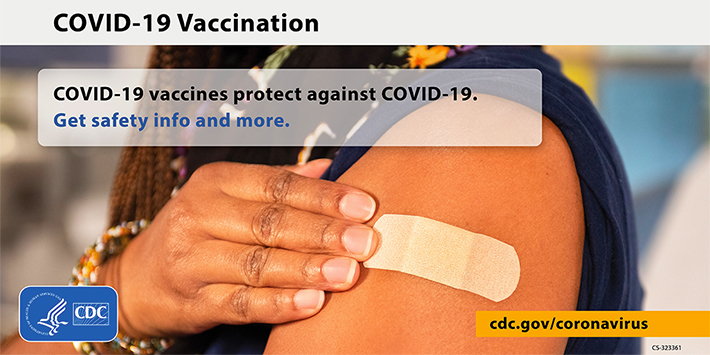
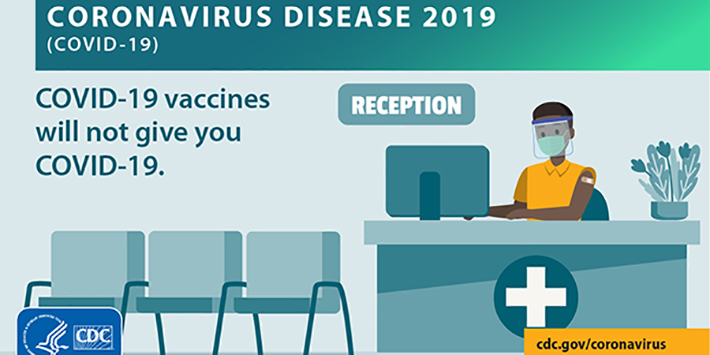
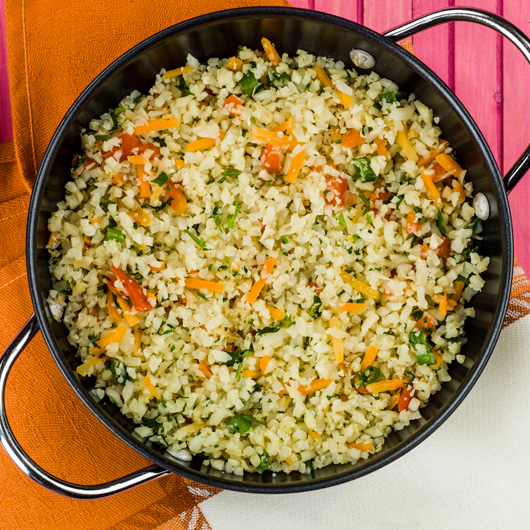
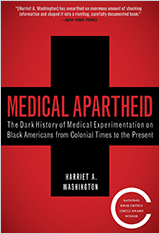
 (Photo courtesy of LightField Studios / Shutterstock.com)
(Photo courtesy of LightField Studios / Shutterstock.com)

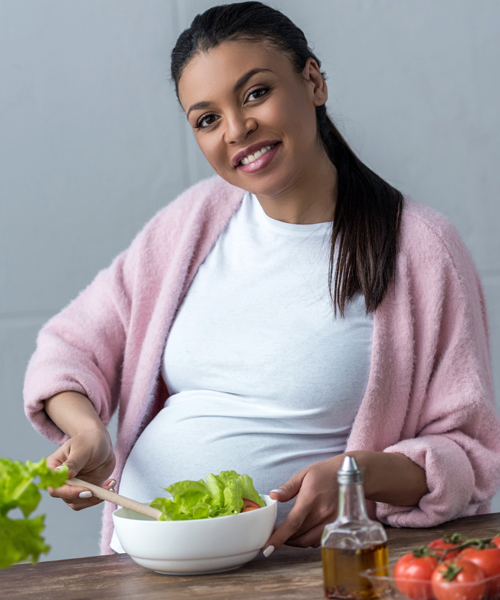 (Photo courtesy of LightField Studios / Shutterstock.com)
(Photo courtesy of LightField Studios / Shutterstock.com)
